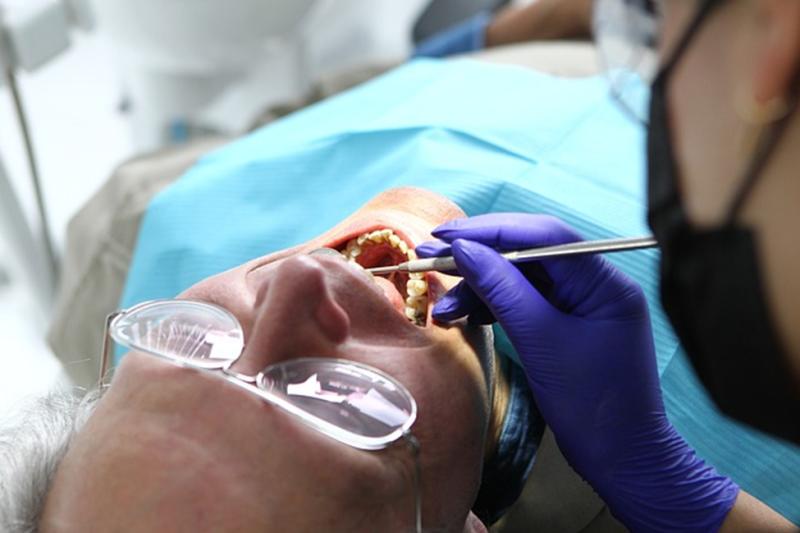6 Reasons Why Senior Dental Care Is Crucial

Poor or neglected dental hygiene in older adults may cause gum pain, resulting in eating difficulties. It may hinder proper nutrition and impact speech. Poor dental care in seniors may also cause aesthetic issues while negatively influencing self-esteem and overall health. With sound oral health, older adults can prevent these problems and improve their quality of life. Here are six reasons why senior dental care is crucial.
1. Prevent gum disease
Statistics indicate that a high percentage (68%) of American seniors aged 65 years or older have gum disease. Gum disease may cause bone loss around a senior’s teeth. It may also result in tooth loss. When older adults lose part of or all their teeth, they may experience countless struggles. While there are multiple options, including dentures and implants, to compensate for tooth loss, they may come at high costs and possibly painful procedures. This leaves proper dental care as the best solution to preserve a senior’s ability to smile, talk, and eat comfortably.
The risk of gum disease can be avoided by consulting dentists on the best brushing techniques to use and regularly flossing teeth to keep the spaces between teeth clean. Visiting the dentist for regular teeth cleaning and checkups can lessen the possibility of contracting gum disease. If you can't make it to the dentist's office, a travelling dentist can help with all your dental care concerns.
2. Reduce the risk of tooth decay
Tooth decay is a common dental issue among the elderly. Seniors usually have receding gums, which increases the risk of cavities developing at a tooth's root. Tartar and plaque buildup often results in tooth decay. A dry mouth, a common problem in older adults, may easily cause bacteria buildup in the mouth, causing tooth decay.
Hand weakness, tremors, and arthritis may make it hard for the elderly to clean their teeth, increasing the risk of tooth decay. Proper dental care, including brushing and flossing daily, avoiding tobacco use and smoking, investing in healthy nutrient-rich diets, seeking dry mouth treatment, and regular checkups with the dentist can help prevent tooth decay.
3. It helps prevent heart disease
Heart disease and oral health are linked by spreading bacteria from the mouth to other body parts through the bloodstream. Upon reaching the heart, these bacteria may attach to damaged parts, causing inflammation. This may result in diseases like endocarditis, the heart's inner lining infection. Oral bacteria-related inflammation may cause other cardiovascular issues, including stroke and clogged arteries (atherosclerosis).
Older adults with chronic gum diseases like advanced periodontal disease or gingivitis are at a higher risk of poor oral health-related heart disease. With regular dental exams and good oral care, seniors can safeguard themselves against gum diseases and, eventually, oral health-related heart disease.
4. Avoid oral cancer
Poor oral hygiene is associated with higher oral cancer risk. Seniors who have chewed tobacco or have poor oral hygiene have a higher risk of contracting oral cancer. If neglected, oral cancer may affect the gums, teeth, lips, tongue, and throat and spread to other body parts. Maintaining a proper dental care regime can significantly reduce oral cancer risk.
Regular dental checkups and brushing several times a day using toothpaste can also lower the risk of contracting oral cancer. Eating a balanced diet rich in vegetables and fruits and stopping tobacco product usage is an effective way to minimize the risk of this disease. Frequent oral cancer screening is crucial for seniors in the high-risk category.
5. Reduce the risk of dementia
Oral health issues like tooth loss, cavities, poor oral hygiene, and gum disease are common in the elderly. Seniors with tooth loss are at a greater risk of dementia and cognitive impairment, with the risk rising with each missing tooth. And since seniors are more likely to have dementia or mental impairment, recent studies have suggested a connection between these conditions and dental health. The study found that seniors with missing teeth have a 48% higher cognitive impairment risk and a 28% more dementia threat.
While the link between cognitive decline risk and tooth loss is still unclear, losing your teeth can cause chewing problems that might result in chemical imbalances, nutritional deficiencies, or brain changes that impact its function. Following a healthy dental care routine, checkups, and cleaning can help prevent tooth loss, minimizing the risk of dementia.
6. It helps avoid tooth loss
Tooth loss in seniors is a concern for bone health, nutritional status, psychological health, and the remaining teeth’s structure. Older adults are at a higher risk of tooth loss because of a gum recession combined with subsequent root surface exposure, gingivitis, dental caries, medications, and periodontitis. However, they can prevent tooth loss with proper dental care and a healthy diet.
Endnote
Oral health issues are common in older adults. However, proper dental care and hygiene can help prevent oral health problems in seniors.
More to Read:
Previous Posts:











